Understanding the Common AI Adoption Challenges for Small Businesses
Artificial Intelligence (AI) holds incredible promise for businesses, offering ways to enhance productivity, improve decision-making, and create innovative solutions. However, many small businesses encounter significant challenges when attempting to adopt and integrate AI technologies. These challenges can become roadblocks that hinder progress and stifle competitive growth.
One of the most common pitfalls is the lack of skilled talent. Small businesses often struggle to find and retain employees who have the expertise required to implement and manage AI systems effectively. This talent gap can lead to poorly executed AI projects or even deter companies from starting their AI journey altogether.
Another significant challenge is inadequate infrastructure. Unlike larger enterprises, small businesses may not have the resources to invest in the high-end computing power and sophisticated network infrastructure needed to support AI workloads. Without the right infrastructure, AI initiatives can falter, leading to inefficiencies and unmet expectations.
Data management is also a critical issue. AI systems thrive on data, and the quality, accessibility, and governance of this data are paramount. Many small businesses face difficulties in managing their data effectively, which can result in inconsistent or poor-quality inputs that undermine AI performance.
The Importance of Skilled Talent in AI Implementation
For AI to be effectively adopted and integrated, having the right talent is crucial. Skilled professionals are needed to develop, deploy, and maintain AI systems. However, the rapid evolution of AI technology means that the demand for these skills often outstrips supply. This shortage can be particularly acute for small businesses, which may not have the resources to compete with larger organizations for top talent.
Moreover, even when small businesses manage to hire skilled professionals, retaining them can be challenging. High turnover rates can disrupt AI projects and lead to a loss of institutional knowledge. Continuous learning and development opportunities are essential to keep existing staff updated on the latest AI advancements and best practices.
To address this, small businesses need to focus on both attracting new talent and upskilling their current workforce. Offering career development programs, competitive salaries, and a positive work environment can make a significant difference. Additionally, partnering with organizations like Robinett can provide access to external expertise and training resources.
Building an Adequate Infrastructure for AI Success
Infrastructure is the backbone of any successful AI initiative. Small businesses often find themselves constrained by limited budgets, which can make it difficult to invest in the necessary hardware and software. High-performance computing systems, robust network solutions, and advanced data storage options are all critical components that support AI workloads.
Scaling infrastructure to meet the demands of AI can be a daunting task. Small businesses need to ensure that their IT infrastructure is flexible and scalable, capable of growing alongside their AI ambitions. This includes investing in cloud-based solutions that offer scalability and cost-efficiency, as well as ensuring that their networks are secure and capable of handling increased data traffic.
Cisco’s solutions, coupled with the expertise of partners like Robinett, can help small businesses build the infrastructure they need. By leveraging Cisco’s advanced technologies, small businesses can create a robust foundation that supports AI initiatives, ensuring they have the computational power and network capabilities required to succeed.
Effective Data Management Strategies for AI
Data management is a cornerstone of successful AI adoption. AI systems rely on large volumes of high-quality data to function effectively. However, many small businesses struggle with data silos, inconsistent data quality, and inadequate data governance practices. These issues can severely impact the performance of AI systems, leading to inaccurate insights and suboptimal decision-making.
To overcome these challenges, small businesses need to implement robust data management strategies. This includes establishing clear data governance frameworks, ensuring data is collected and stored in a consistent manner, and implementing tools that facilitate data integration and analysis. Additionally, businesses should focus on maintaining data hygiene, regularly cleaning and updating their datasets to ensure accuracy and relevance.
Partnering with experts like Robinett can provide small businesses with the guidance and tools needed to improve their data management practices. By leveraging Cisco’s data management solutions, businesses can gain better visibility into their data, ensuring it is accessible, secure, and ready for AI applications.
How Robinett and Cisco Can Help: A Partnership for Success
Navigating the complexities of AI adoption can be overwhelming for small businesses. This is where trusted partners like Robinett and Cisco come into play. Robinett, as a certified Cisco partner, brings a wealth of expertise and resources that can help small businesses overcome the common pitfalls of AI adoption.
Robinett can provide tailored solutions that address the unique challenges faced by small businesses. From assessing AI readiness to implementing robust infrastructure and data management practices, Robinett offers end-to-end support that ensures businesses are well-equipped to leverage AI technologies. Cisco’s advanced solutions, combined with Robinett’s hands-on approach, create a powerful partnership that drives AI success.
Whether it’s through providing access to skilled talent, offering training programs, or delivering scalable infrastructure solutions, Robinett and Cisco can help small businesses navigate the AI landscape with confidence. This partnership ensures that businesses not only adopt AI technologies but also fully realize their potential, driving growth and innovation.
Actionable Insights for Improving AI Readiness
Improving AI readiness requires a strategic and comprehensive approach. Small businesses can take several actionable steps to enhance their AI capabilities and overcome common challenges.
- Invest in Talent Development: Focus on attracting, retaining, and upskilling talent. Provide continuous learning opportunities and create a supportive work environment that encourages growth and innovation.
- Build Scalable Infrastructure: Invest in scalable and flexible infrastructure solutions that can grow with your business. Consider cloud-based options for cost-efficiency and ease of scaling.
- Enhance Data Management: Implement robust data governance frameworks and ensure data quality through regular cleaning and updating. Utilize advanced tools for data integration and analysis.
- Leverage Expert Partnerships: Partner with experts like Robinett and Cisco to access the resources and expertise needed to navigate AI adoption successfully. Their support can provide valuable insights and tailored solutions.
- Promote a Pro-AI Culture: Foster a culture that embraces AI by addressing employee concerns, providing necessary training, and highlighting the benefits of AI technologies. Encourage responsible experimentation and innovation.
By following these steps and leveraging the support of trusted partners like Robinett and Cisco, small businesses can overcome the common pitfalls of AI adoption and unlock the full potential of AI technologies. This journey not only enhances business capabilities but also positions small businesses for long-term success in an increasingly AI-driven world.
References:
- McKinsey & Company. (2018). Notes from the AI Frontier: Insights from Hundreds of Use Cases. Link
- Ransbotham, S., Kiron, D., Gerbert, P., & Reeves, M. (2017). Reshaping Business with Artificial Intelligence. MIT Sloan Management Review. Link
- Westerman, G., Bonnet, D., & McAfee, A. (2014). Leading Digital: Turning Technology into Business Transformation. Harvard Business Review Press.




